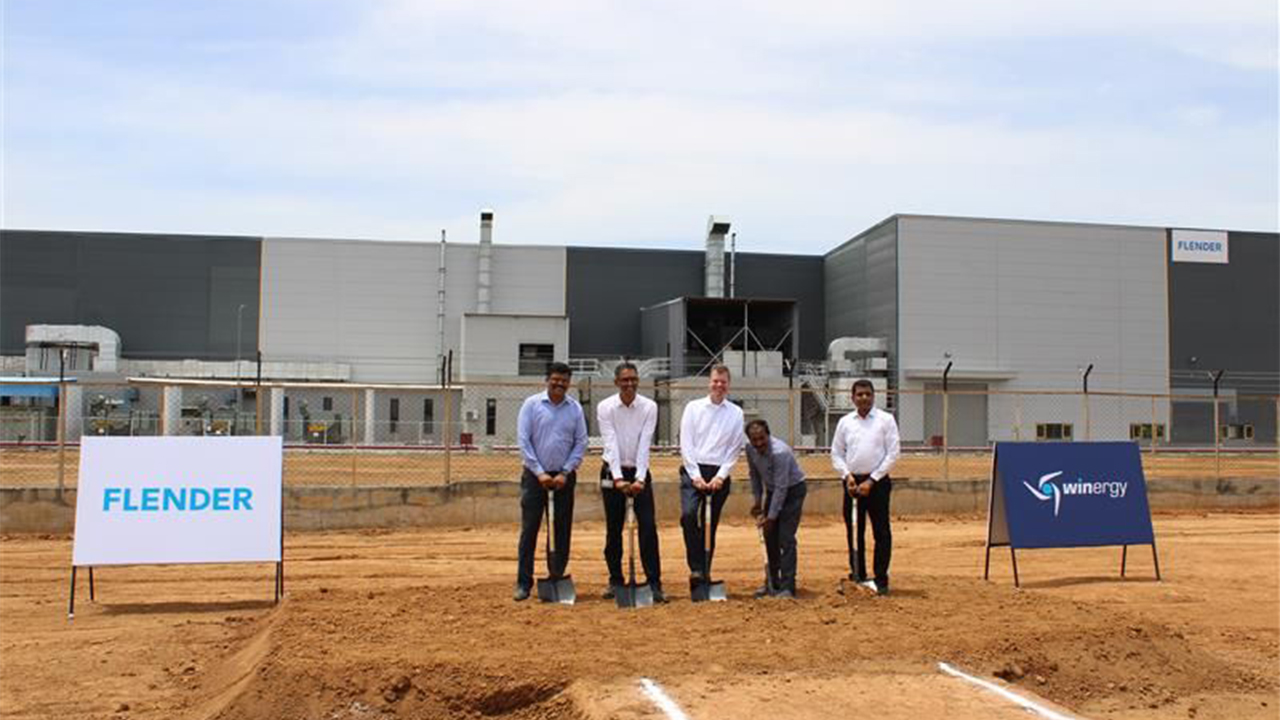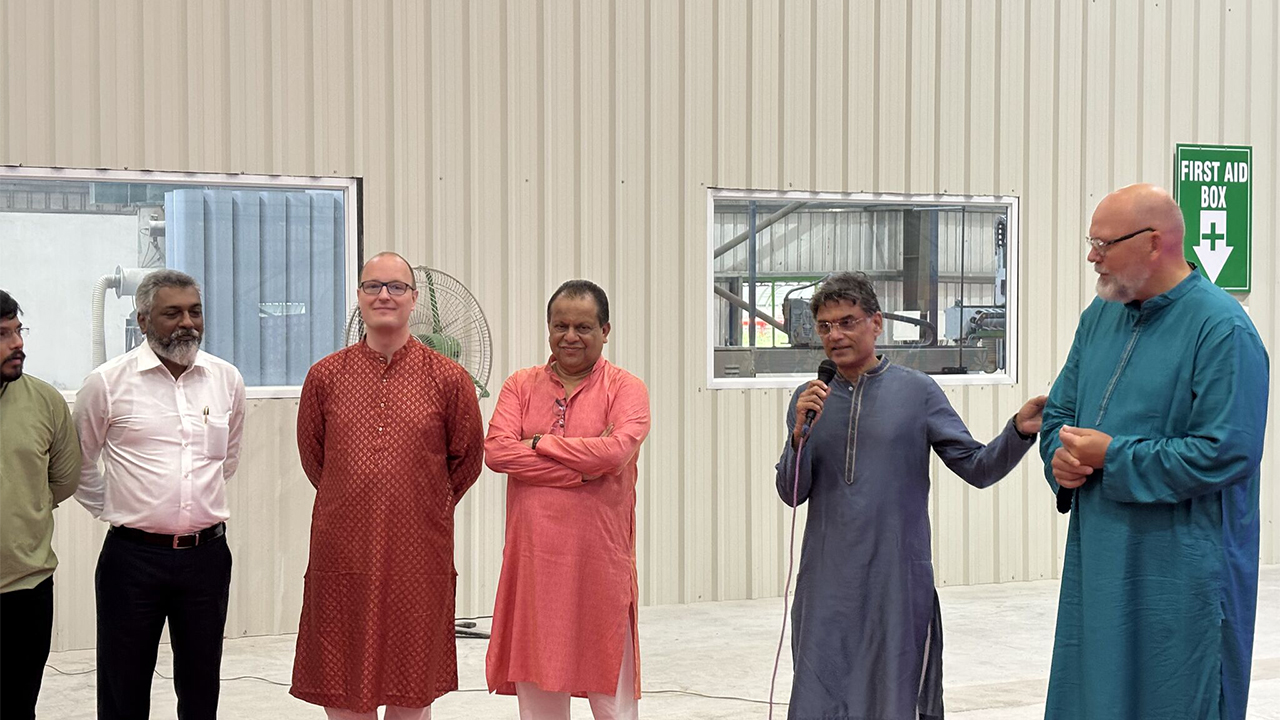In an exclusive interview with Mr. Milind Patke, Executive Director (Biofuels), Bharat Petroleum Corporation Ltd, conducted by Pro MFG Media; Mr. Patke shared his insights on BPCL’s initiatives to create a new eco-system for Bioenergy and how it can be a win-win situation for the stakeholders. Throwing light on energy mix, how it can be incorporated within auto industry, aviation industry and others; he spoke on challenges faced by an evolving technology and made some key suggestions. Pro MFG Sustainable Circular Economy series: Doing Well by Doing Good is powered by BiofuelCircle.
Bharat Petroleum Corporation Ltd. (BPCL) is ranked as the best company in India in the Oil and Gas sector on the Dow Jones Sustainability Index (DJSI) and has also ranked 10th in the list of top-30 Oil and Gas companies across the world. BPCL’s contribution to sustainability is indeed worth appreciating as it strives to take every measure to align its business processes with an environmentally friendly and conscious ethos. The company is committed to championing sustainability with the aim to manage risks at every stage of their business operations.
ProMFGMedia presents the interview with Mr. Milind in a crisp yet conversational format. He has shared his in-depth knowledge and also touched upon topics such as: the latest trends in biofuel which are globally adopted, and how awareness campaigns can add leverage to sustainability in India and globally.
Evolving Energy Mix & Trends
Fossil fuels mainly used today are in sectors like: transport, industrial and domestic use. The transport sector is in itself a large segment to cover where we aim to replace transport fuel as per Mediterranean Strategy for Sustainable Development (MSSD) and compressed natural gas with equivalent biofuel. Our first step is to mix ethanol extracted from sugarcane and different food grains with petrol.
Our current aspiration is to work towards ethanol being mixed at nearly 10% or 20% in petrol which will help reduce petrol consumption and thereby combat greenhouse gas emissions. The first step is to increase the manufacturing of ethanol in the country; and today ethanol is mostly obtained from molasses generated by sugar industries. Most sugar industries today, are set-up in states like Maharashtra, Uttar Pradesh and Karnataka; but moving forward we also aspire to consider Andhra Pradesh, Telangana, Tamil Nadu as they also generate surplus rice which is suitable for ethanol manufacturing. If farmers take up maize farming extensively; maize can also be converted into ethanol which can help drive success to our initiative.
The Government of India is also incentivizing over this concern; setting up more manufacturing plants for ethanol production that will give a boost to our idea. Currently, we don't have enough quantities and the country requires huge quantities for conversion, that is even to generate: 10-20% blending. We have currently managed to obtain around 325 crores litres contributing to 7.4% blending of ethanol in MS which is the best by far that we have achieved in the last five years.
Going forward the government aspires to achieve a 20% target of blending ethanol into petrol, in 2025-2030; and therefore we will require a production of around 1000 crore litres of ethanol in 2025. Hence, new manufacturing capacities are required to be set up in deficit states.
We are also aspiring towards second generation ethanol. The process is fairly different from the first generation production. The feedstock for process is lignocellulosic material like agricultural residues of rice, wheat, soybean, cotton and others, however, the main focus is on rice, as it’s produced and available in plenty in our country. The rice straw is converted through an enzymatic hydrolysis process to obtain ethanol. Here the complex carbohydrates are converted into sugars and then fermented. Whereas in case of sugarcane juice since the sugars are already present, the need for conversion of carbons and carbohydrates into sugars is not required. The Ethanol from both process can contribute to 20% Ethanol blending target in MS.
Currently, lot of vehicles are being converted from MS and HSD to compressed natural gas and India is slowly moving towards a gas based economy. The compressed biogas (CBG) or bio-CNG can come from agricultural residues, also from municipal solid waste, cow dung, chicken litter etc. Under a support scheme, the Government is encouraging entrepreneurs to set up biogas plants and oil marketing companies have assured off take for the next 15 years.
We are also coming up with concrete solutions for CBG such as: tie up with the retail outlet network; GAIL has also initiated compressed biogas injection in the CNG pipeline. This will add value and help in decreasing the consumption of fossil fuels.
We are also aiming to produce bio Aviation Turbine Fuel (bio-ATF) in near future with process to convert agricultural residues and other wastes into bio-ATF.
100% ethanol should also be considered but auto OEMs should be ready with their models. We are setting up one outlet in Pune to give confidence to the auto industry that we are capable of giving 100% ethanol, if they can launch their compatible models.
Challenges:
BPCL is building capabilities in order to procure ethanol and blending with petrol; market and distribute it throughout the country. Ethanol comes with its own concerns like: it is hygroscopic in nature - absorbs moisture and therefore has to be used accurately. The challenges faced by the auto industry are that it has to develop the material and engine compatibility for its vehicles for higher Ethanol blend percentage. The oil companies or petroleum companies have to collaborate with the auto industry to ensure that the industry’s apprehensions are met and allow its smooth execution making it available in every part of the country.
There is vital demand to support the evolution of gas-based economy with CBG in a manner that CBG and CNG can coexist; and be mixed in the same pipeline. Such supporting infrastructure has to be developed where the company's biogas is handled properly along with compressed natural gas and the customer is satisfied. It augurs well for the consumers as they get a higher calorific value product at around the same cost.
For giving boost to an evolving technology and scaling it, there are some challenges faced like setting up biomass supply chain, quality of rice, ensuring lower moisture content and pricing of biomass for economic viability.
BPCL Initiatives
BPCL is planning to set up both first generation ethanol and second generation ethanol plants. We are establishing a second generation ethanol plant in Bargarh Odisha and integrating it with the first generation plant right next to it. We are planning to set up other 1G Ethanol plants in states like: Madhya Pradesh, Telangana and Andhra Pradesh.
In depth understanding of supply chains plays a key role in maturing a technology. Hence we have collaborated with one of the best agricultural institutions - Odisha University of Agriculture & Technology (OUAT) and have instituted a BPCL Biofuels Professor chair there. The institution will scan the best practices in technologies available for ethanol and then guide us through it. They will also screen best technologies for biomass collection and segregation and also characterize best-suited feedstock for our second generation ethanol plant.
The economic viability study, life cycle analysis, development of technology for production of green chemicals through fermentation of lignocellulosic biomass and municipal solid wastes, market analysis of potential products from lignocellulosic biorefineries are other aspects we are evaluating.
If some research institutes are able to develop some patents for bio chemicals, then the production of 2G ethanol can be cross subsidized and will become extremely economically viable.
Awareness Campaigns
In the next one or two years, wide consumer awareness and brand related campaigns will come forth where consumers will be educated and similarly biogas companies too. The entire ecosystem needs to be at par on this topic, for example: banks, funding agencies abroad, organizing bankers meetings with technology providers, coordinating with the agriculture ministries of various state governments.
Oil companies should take initiates to ensure that the new ecosystem is created.
Global Scenario
Brazil has introduced ethanol blending and standards ahead of everybody. With regards to petrol consumption, they have already replaced almost 46% with ethanol. So, all the vehicles run on minimum E27 petrol (Petrol with 27% Ethanol blend). Over a period of last few years, they have graduated into flex fuel makers where the vehicle itself has a capability to accept any percentage of ethanol in petrol that’s coming in.
Also Brazil has very high crushing capacity sugarcane factories, which are double or triple in comparison to our country’s capacities. They are even exporting 2G ethanol made from bagasse to places like Colombia and also other countries. The USA is another country where mostly corn based ethanol is produced and using genetically modified corn. There are also countries in Europe that are producing ethanol and a lot of ethanol technology providers today are in Europe.
If India is able to achieve 10% blending of Ethanol into petrol by next year and then touch 20%, in 2025, we will be almost keeping pace with Europe, USA and Brazil, and all other countries.
NEWSLETTER
TRENDING ON PRO MFG
MORE FROM THE SECTION









